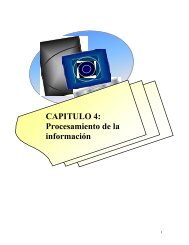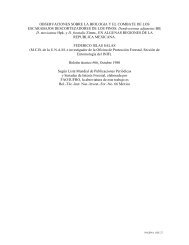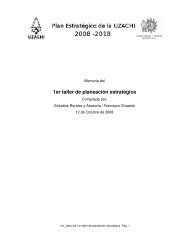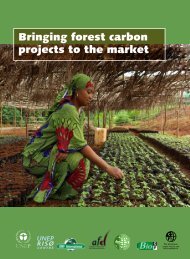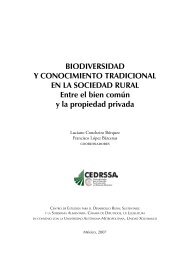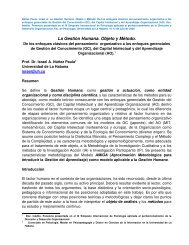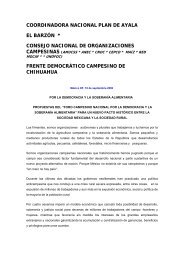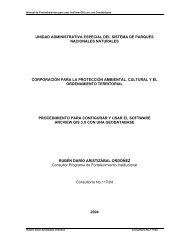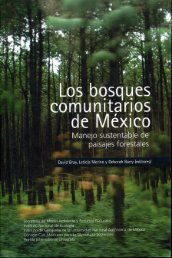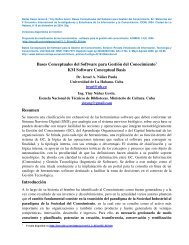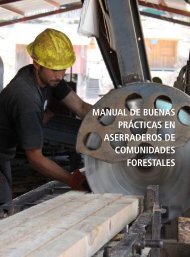STATE OF THE WORLD's INDIGENOUs PEOpLEs - CINU
STATE OF THE WORLD's INDIGENOUs PEOpLEs - CINU
STATE OF THE WORLD's INDIGENOUs PEOpLEs - CINU
- No tags were found...
You also want an ePaper? Increase the reach of your titles
YUMPU automatically turns print PDFs into web optimized ePapers that Google loves.
EMBARGOED UNTIL 14 January 2010<strong>STATE</strong> <strong>OF</strong> <strong>THE</strong> WORLD’S INDIGENOUS PEOPLESNot for distributionOnly poor people cannot afford to work near the village, as there is often no fertile land left. Theyoften stay in the forest for weeks with their children”. — a district indigenous officer, Viet Nam 17Indigenous peoples also face huge disparities in terms of access to and quality of education and health. InGuatemala, for example, 53.5 per cent of indigenous young people aged 15-19 have not completed primaryeducation, as compared to 32.2 per cent of non-indigenous youth. 18 Although infant and child mortality has beensteadily decreasing throughout Latin America over the last four decades, child mortality is still 70 per cent higheramong indigenous children. Furthermore, malnutrition is twice as frequent among indigenous children in theregion. 19 In Nepal, while some indigenous peoples, such as the Thakali, Byasi and Hyolmo, have literacy rates thatsurpass the national average, 30 of the country’s indigenous peoples still fall far below it. 20Indigenous peoples also suffer from discrimination in terms of employment and income. According to theILO, indigenous workers in Latin America make on average about half of what non-indigenous workers earn.Approximately 25-50 per cent of this income gap is “due to discrimination and non-observable characteristics,such as quality of schooling”. 21In different parts of the world, differential progress is being made by indigenous peoples in their social andeconomic development, reflecting specific national legal and policy frameworks with regard to recognizing,respecting and promoting their rights. Historical and ongoing colonialism has trapped many of them inconditions of deepening impoverishment, even as others have made important advances in assertingrecognition of their distinct identities as indigenous peoples and promoting models of development withcultural identity and integrity, applying a human rights-based approach. It is clear that the advancement ofindigenous peoples’ social and economic development is predicated on international and national recognitionof their human rights and on pursuing development strategies based on their own definitions and indicatorsof poverty and well-being.Statistics on the situation of indigenous peoples are not readily available because few countries collect datadisaggregated by ethnicity. Nonetheless, it is possible to build a picture of indigenous peoples’ social andeconomic development through the use of selected national and regional information, and through analysis ofinformation gleaned from the Human Development Index and the Human Poverty Index.The following information from countries where national statistics are available is indicative of the povertysituation of indigenous peoples in different countries and regions.Living conditions of indigenous peoples in Australia, Canada New Zealand and theUnited StatesPoverty and well-being of indigenous peoples is an issue not only in developing countries, as it is often thought.Even in developed countries, indigenous peoples consistently lag behind the non-indigenous population in termsof most indicators of well-being. They live shorter lives, have poorer health care and education and endure higherunemployment rates. Those indigenous persons who do enjoy full employment earn significantly less than their nonindigenouscounterparts. A native Aboriginal child born in Australia today can expect to die up to 20 years earlier17Asian Development Bank (2002).18ECLAC (2005), 101.19ECLAC (2007), 191.20UNDP (2004), 63.21ILO (2007), 27.22 | CHAPTER I



